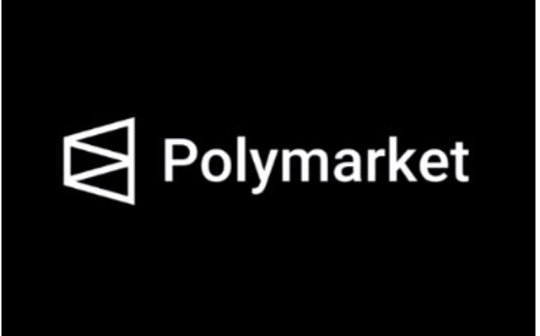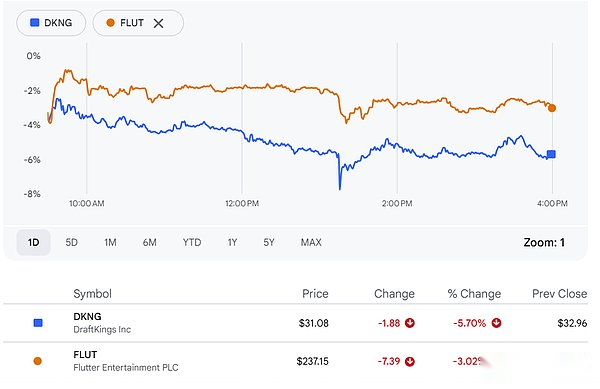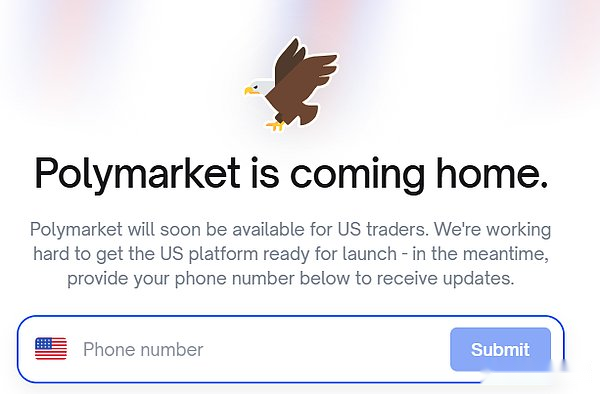
Author: Bao Yilong, Wall Street News
Nearly three years after being expelled from the United States for illegal trading, prediction market platform Polymarket is preparing to return to the U.S. market and plans to focus its business on sports betting.
On October 28, according to media reports citing people familiar with the matter,Polymarket may launch before the end of November, but it will not be open to all users initially.Choosing this timing may allow Polymarket to capture more trading volume during the peak of the US football and basketball seasons.
In 2022, Polymarket paid a fine of US$1.4 million and was expelled from the U.S. domestic market to settle charges from the U.S. Commodity Futures Trading Commission that it engaged in illegal trading.
Shares of U.S. gaming companies fell after the news was reported.DraftKings shares fell more than 5%, and FanDuel parent company Flutter Entertainment fell 3%.

It is worth noting that earlier in the day, these gambling stocks were already under pressure as Trump’s social media company announced that it would enter the field by partnering with Polymarket competitor Crypto.com.
Use licensed companies to pave the way to compliance
To ensure compliance for this return, Polymarket has taken key strategic steps.
As previously reported, Polymarket acquired QCX after the U.S. Department of Justice and CFTC dropped investigations into the crypto betting platform earlier this year.
QCX has obtained a derivatives exchange and clearing house license from the CFTC, a move that is seen as Polymarket’s core strategy to return to the U.S. market.
Currently, Polymarket’s US version website has set up a waiting list for users to register to receive the latest news.Its website states:

Industry trends: The forecast market is soaring
Polymarket’s return comes at a time when the entire prediction market industry is experiencing explosive growth.
Platforms like Polymarket and Kalshi allow users to place bets on everything from Oscar winners to changes in central bank interest rates.
Last year, its competitor Kalshi won a lawsuit against US regulators and was allowed to trade on presidential election results and other matters through so-called “event contracts”, which greatly promoted the development of the industry.
Business has surged to record levels recently, in large part because the exchanges have used their federal financial licenses to operate in states that have previously banned sports betting.
This model has attracted the attention of many large institutions. According to Bloomberg, financial giant CME Group is considering launching its own sports betting contract before the end of the year after reaching a cooperation with FanDuel.
Regulatory cloud: The game with state agencies is not over yet
Despite the promising industry prospects, prediction market companies still face a complex regulatory environment and ongoing legal challenges in the United States.
Regulators in some states have made it clear thatPrediction markets are not allowed to operate within their states, creating uncertainty for the industry’s expansion.
The legal battle continues.
This Monday,Kalshi filed a lawsuit against the New York State Gaming Commission, accusing the agency of exceeding its authority by trying to regulate sports betting, which falls entirely within federal jurisdiction.
The lawsuit highlights the tension between prediction market platforms and the regulatory powers of states as they seek to operate nationwide, and it also indicates that companies such as Polymarket may face similar challenges in the future.





